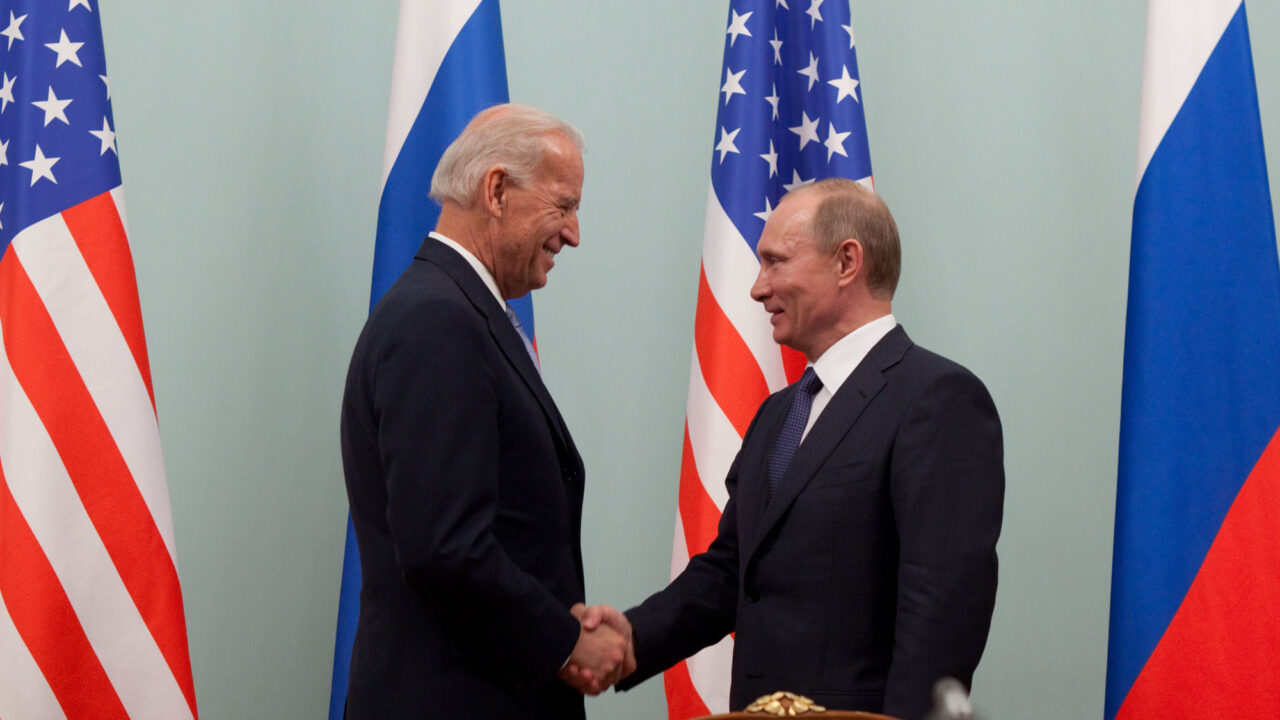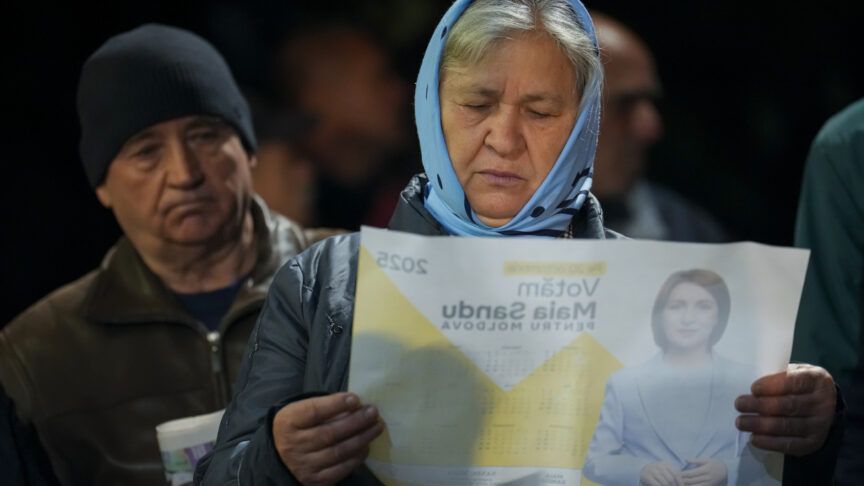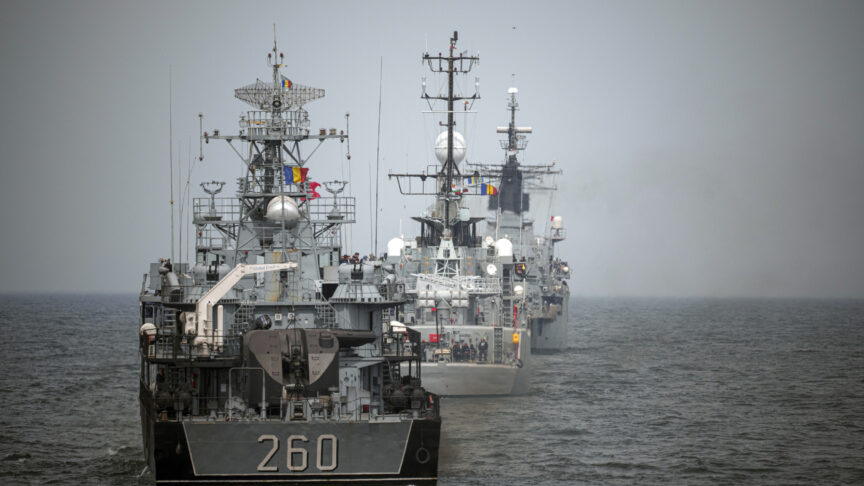Small victories: Why US-Russia relations could improve under Biden
The Biden administration’s approach to Nord Stream 2 indicates that it could ease the pressure on Russia in some of the most important spheres. But a new crisis could quickly lead to a new low in US-Russia relations
To the casual observer, the current state of relations between the United States and Russia might seem paradoxical. While the countries pose no existential threat to each other (aside from the nuclear one) and have no irreconcilable national interests, their relationship is troubled and could deteriorate further at any moment.
Yet events in the last two decades have made this situation almost unavoidable. There are real differences in how Russia and the US see the world and the rules that govern it. This has led to international conflicts that have little prospect of resolution – such as the war in Ukraine.
There is a lot of bad blood between elites in Moscow and Washington. No constituency in Washington has an interest in improving relations with Russia. While the Russian authorities want to strengthen ties with their American counterparts, they believe that the US side is in the wrong and, therefore, should make the effort to improve their relationship.
The two countries have embedded their confrontational approach to each other in an infrastructure of sanctions, blacklists, detentions of each other’s citizens, and diplomatic closures and expulsions – all of which would be technically difficult and politically costly to dismantle. In both capitals, there is a cottage industry that thrives on inflating the threat the other side poses (in Washington, the situation is aggravated by some US allies’ fear that an accommodation with Russia would come at their expense).
There is a lot of bad blood between elites in Moscow and Washington. No constituency in Washington has an interest in improving relations with Russia.
In this environment, it is hard to be optimistic about the Biden administration’s prospects for improving US-Russia relations. However, there might be some hope for stabilising – and perhaps even slightly improving – the relationship.
Firstly, the sides are clear-eyed about each other. For the first time in more than a decade, leaders in Moscow have no illusions that a change in the occupant of the White House could lead to the change in the general US approach to Russia. President Joe Biden, for his part, does not seem to believe that Russia will go away or change into something that is more acceptable to the US – which means dealing with Moscow as it is.
Secondly, Biden’s foreign policy centres on growth at home, international stability, managed competition with China, and efforts to address global challenges such as climate change and the covid-19 pandemic. Russia will have an important role to play in any UN-based solutions to these challenges, which heightens its importance to the US administration. The country could also be important to solving regional conflicts in the Middle East, Africa, and Asia. And the US might want to minimise its confrontation with Russia so that it can focus on China. Russian foreign policy, which often forms a reaction to what leaders in Moscow perceive as US offences, could become less confrontational in response to reduced pressure from Washington (be it in relation to sanctions, military affairs, or even rhetoric).
Thirdly, Moscow and Washington have an interest in dealing with not just traditional security issues such as nuclear and conventional deterrence but also newer ones, particularly cyber. To these ends, they will use diplomatic channels wherever possible.
Therefore, one can realistically expect the US and Russia to dismantle at least some of that infrastructure of confrontation discussed above. This could involve prisoner exchanges and the normalisation of the work of their embassies – even if, so far, there has been little progress on either front.
Russia and the US could also agree on arms control measures and some level of cooperation in cyberspace. Since Biden came to power, the sides have taken several modest but promising steps in their dialogue on strategic stability. The ransomware crisis that struck the US in the first months of the Biden presidency has dissipated, presumably thanks to cooperation with Russia.
Finally, Russia and the US have already teamed up to promote joint solutions to international problems at the United Nations. In October 2021, the two countries jointly submitted a resolution on cyber norms at the UN General Assembly. Therefore, they could engage in further such cooperation.
In the last few months, US-Russia diplomacy has involved a flurry of activity and high-level visits. There are rumours that the sides will hold a virtual summit before the end of the year and an in-person meeting in early 2022. Presidential meetings are a good mechanism through which to assess this progress, declare a few achievements, and perhaps agree to specific breakthroughs in areas where the bureaucracy is unable to do so by itself.
Biden’s reluctance to continue the fight against the Nord Stream 2 pipeline indicates that his administration could ease the pressure on Russia in some of the most important spheres. It seems that, so long as there is no new crisis, the administration will have little appetite for a confrontation with Moscow.
However, there is a distinct possibility that there will be such a crisis. From simmering conflicts in Donbas and around Crimea to the influx of migrants into Europe through Belarus, to NATO’s and Russia’s military overflights at each other’s borders, to issues involving troops in Syria, to a possible arms race in Europe – there are more than enough sources of instability to cause an explosion at any moment. With presidential elections set to take place in both Russia and the US in 2024, electoral interference and state sovereignty will become huge issues in their bilateral relationship.
So, officials in Moscow and Washington will have to work overtime to resolve those problems – or at least prevent them from sparking a crisis. They should also try to repair the bilateral relationship more broadly and cooperate on global issues where this is in the interests of both parties. Any progress they make on some of the bigger challenges – such as the Ukraine conflict – would come as a pleasant surprise.
Andrey Baklitskiy is a senior research fellow at the Institute of International Studies at MGIMO University, Russia. He was a participant and speaker at ECFR’s latest EU-Russia strategy group, which took place online on 15 November. At this meeting, around 30 leading experts and policymakers from Europe and Russia gathered to share their views on the recent crises in eastern Europe, the renewed dialogue between the US and Russia, and the role of climate in EU-Russia relations.
The European Council on Foreign Relations does not take collective positions. ECFR publications only represent the views of their individual authors.



